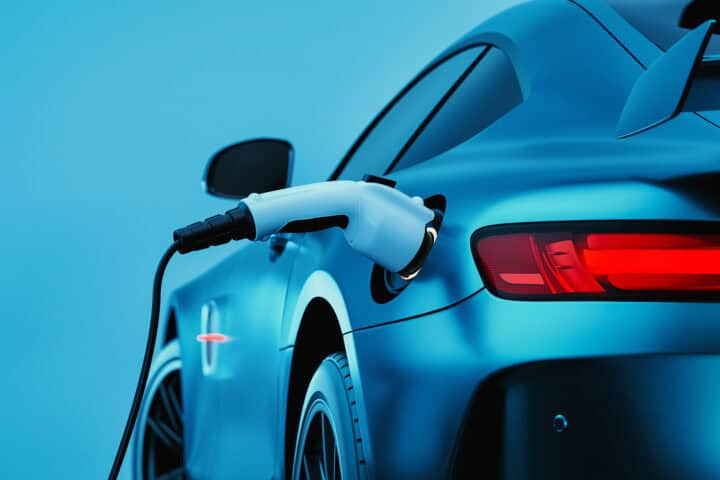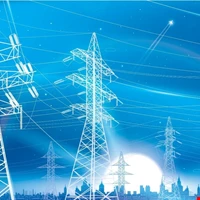Los Angeles, gearing up to host the 2028 Summer Olympics, is embarking on a transformative journey toward becoming a global leader in clean transportation. Spearheaded by the Los Angeles Cleantech Incubator (LACI), the Transportation Electrification Partnership aims to showcase the city’s commitment to sustainable mobility. Matt Petersen, CEO of LACI, emphasizes California’s pivotal role in climate policy and economic growth, underlining the significance of this initiative. The Zero Emissions 2028 Roadmap 3.0 outlines ambitious plans to electrify transportation, with a focus on expanding EV infrastructure along key corridors like Interstate 710. By 2028, the goal is to have 129,000 operational light-duty vehicle chargers countywide, with significant progress already seen in Southern California’s electric vehicle market. Collaborative efforts, supported by federal and state funding and regulatory changes, are driving rapid advancements in transportation electrification. Initiatives like Charge-Up LA! by the Los Angeles Department of Water and Power (LADWP) incentivize heavy-duty charging infrastructure development, demonstrating the importance of partnerships in achieving sustainability goals. As Los Angeles evolves into a hub of clean transportation, the Olympics serve as a catalyst for long-term transformation, emphasizing the urgent need for accessible, eco-friendly mobility solutions for all residents.

Prior to the 2028 Summer Olympics, the second-largest metro area in the country hopes to establish itself as a leader in clear transportation. Among other things, the action plan calls for an additional investment in charging infrastructure.
As Los Angeles gets ready to host the 2028 Summer Olympics, tech and transportation leaders are moving quickly to increase energy car charging and adopt fresh mobility technologies in transit, ports, and other sectors.
The Los Angeles Cleantech Incubator (LACI) established the Transportation Electrification Partnership with the objectives of firmly establishing the metro area as a leader in clean transportation and communicating to the rest of the world the policies, procedures, and collaborations required to carry out this transformation.
The Los Angeles urban area is the third-largest metro economy in the world, after Tokyo and New York City, according to Matt Petersen, CEO of the LA Cleantech Incubator. As the largest city in a large state in America, we take our responsibility seriously” he said. “We are aware that what we do these is important. California has long been a leader in climate policy while experiencing report economic growth.”
The Partnership has adopted the Zero Emissions 2028 Roadmap 3.0 to hasten the adoption of EVs in the L.A. region, expand heavy-duty vehicle charging, and more transition public and personal fleets to electric vehicles.
The plan envisions the heavily trafficked Interstate 710 as a goods-movement corridor wired with enough charging infrastructure to support the electrification of 40% of the drayage trucks traveling the route by 2028 and 100% by the year 2035.
Accelerating Clean Transportation: Los Angeles Electrification Journey by 2028
By 2028, the plan aims to have 129,000 light-duty vehicle charges operational in Los Angeles County. According to LACI, there are currently about 29,000 people and commercial chargers in use throughout the county. In Southern California, about 25% of new car sales are now electric, accounting for about 5% of the region’s automobile sales.
We were aware that perception was a component of range anxiety, and that obvious charging is necessary to address it. Therefore, Petersen said, “Eyes on charging: people charging, working charging.” Multifamily and multiunit homes are essential as we consider where we need to enter the market.
The implementation of sizable sums of federal and state funding from legislation like the Infrastructure Investment and Jobs Act, as well as state regulatory changes such as the Advanced Clean Fleets rule enacted by the California Air Resources Board (CARB), have aided much of this ambitious development in quickly transitioning the transportation sector in the country’s second-largest metro.
According to officials, the success of initiatives like these depends on partnerships and collaboration. Charge-Up LA! has been introduced by the Los Angeles Department of Water and Power (LADWP). program, a reward scheme intended to advance the growth of heavy-duty charging. A reimbursement of up to $125,000 per charging station is offered by LADWP.
Empowering Electrification: Charge Up LA! Sparks Progress Towards Clean Transportation Goals
According to Greg Sarvas, Charge Up LA!, the program has assisted in funding the development of 16 projects since its inception in 2019, putting 54 chargers into operation. manager of programs Charge Up LA has received about $15.5 million from LADWP!
Sarvas wrote in an email,”While LADWP offers a good rebate, more outside funding is frequently required to provide the capital required for electrification.” Customers can take advantage of these opportunities to the fullest by stacking LADWP’s rebate with another state and national programs.
According to Petersen, L.A. has been changing over time, going from being a place of swimming pools and strong cars to one of drought-tolerant landscapes, electric cars, and “mode-shift,” where the region’s millions of residents put their cars off and use another, more environmentally friendly modes of transportation.
He continued “The Olympics themselves are an inflection point.” There is a sense of urgency to persuade the area to work with the long-term objective. How can we clean up our air and help reduce greenhouse gas emissions while giving every neighborhood and native access to dependable, fresh modes of transportation?
Transportation Electrification by Numbers in Los Angeles
- 200 out of 14 energy short-haul drayage trucks, 636
- Chargers committed to efficient operation: 1,816
- 44 out of 2,000 energy buses run the L.A. Metro.
- Chargers for light-duty vehicles in common and commercial settings: 29,000
- Electric vehicles in Los Angeles County: 5%
- Electric vehicles in Los Angeles County in 2018: 0.75%
- Streetlights in the city that allow for car charging: 700








